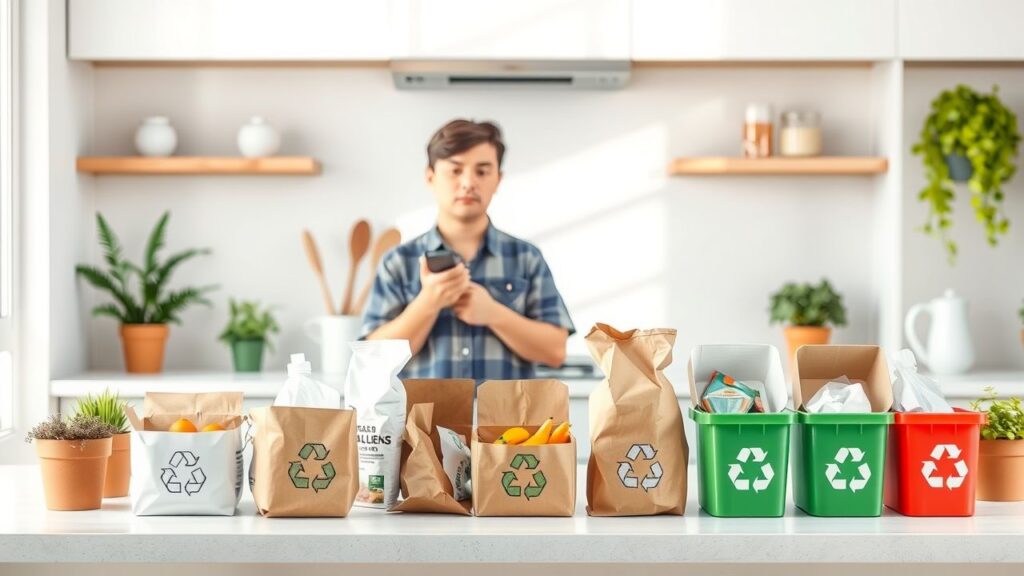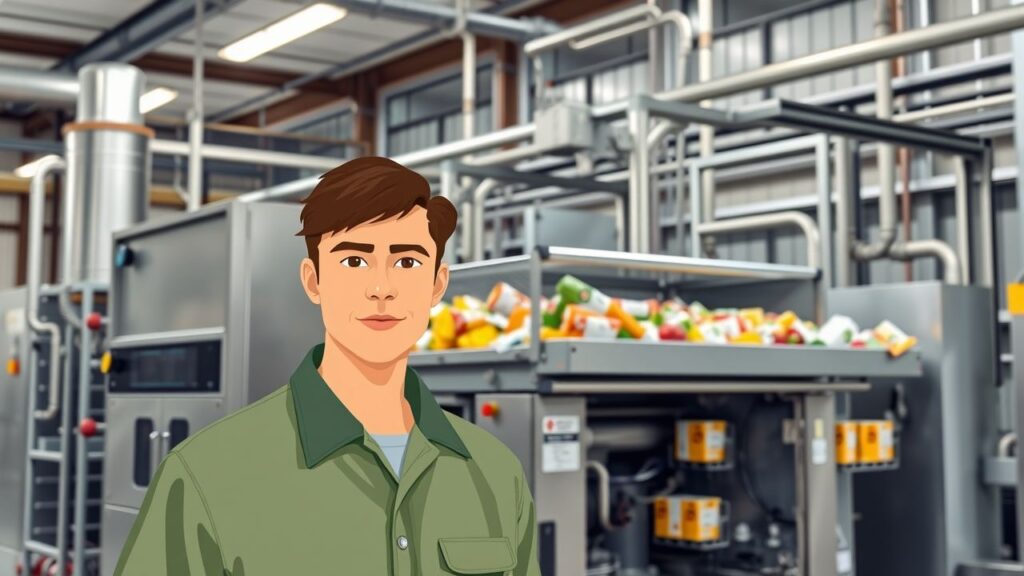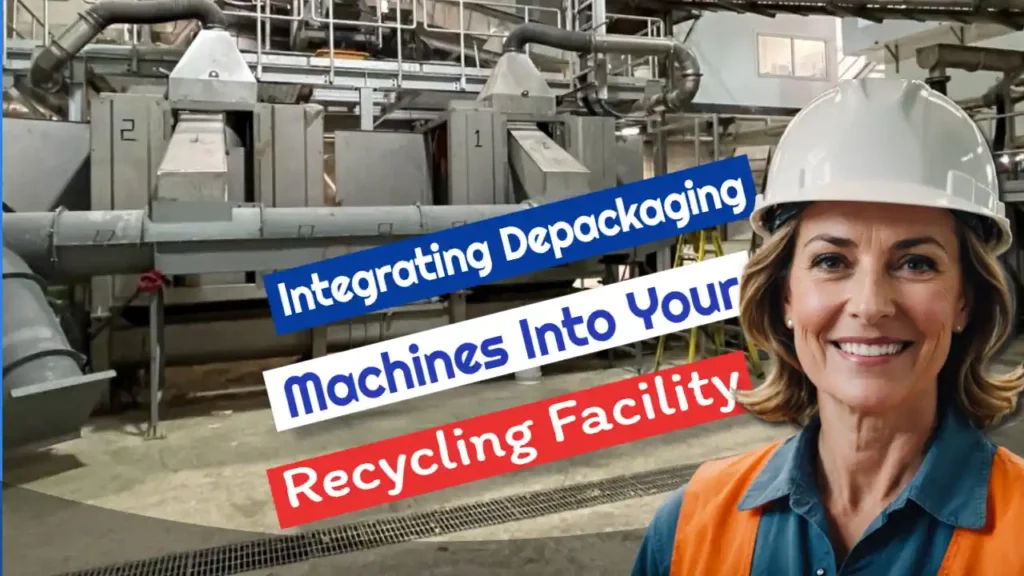Are you struggling with waste management? Millions of tons of food and drinks end up in landfills. They are mixed with packaging or garbage, taking up space and harming the environment.
Industrial depackaging solutions can help. Denali offers services to separate packaging from food waste. This boosts efficiency and helps save costs. Our blog will guide you through the benefits, types of suitable waste, advanced equipment, and ways to reduce contamination.
Stay tuned! This information can change how your business handles waste.
Key Takeaways
- Cost Savings and Efficiency
Industrial depackaging saves money. Machines reduce labour needs and process waste faster. This leads to fewer employees needed for waste management tasks. - Enhanced Food Safety
Proper depackaging ensures food safety compliance. It reduces contamination risks, making organic waste cleaner for recycling or composting. - Operational Flexibility
These systems handle various wastes like meat, dairy, bakery items, and frozen foods. This makes them versatile for both small shops and large supermarkets. - Advanced Equipment Innovations
New machines use less energy and fit in small spaces. Features include high-purity output and better contamination control. - Sustainability Goals Support
Depackaging helps lower landfill usage and methane emissions. Comply with laws like California’s SB 1383 by cutting down on organic waste as much as possible by up to 75% by the year of 2025.
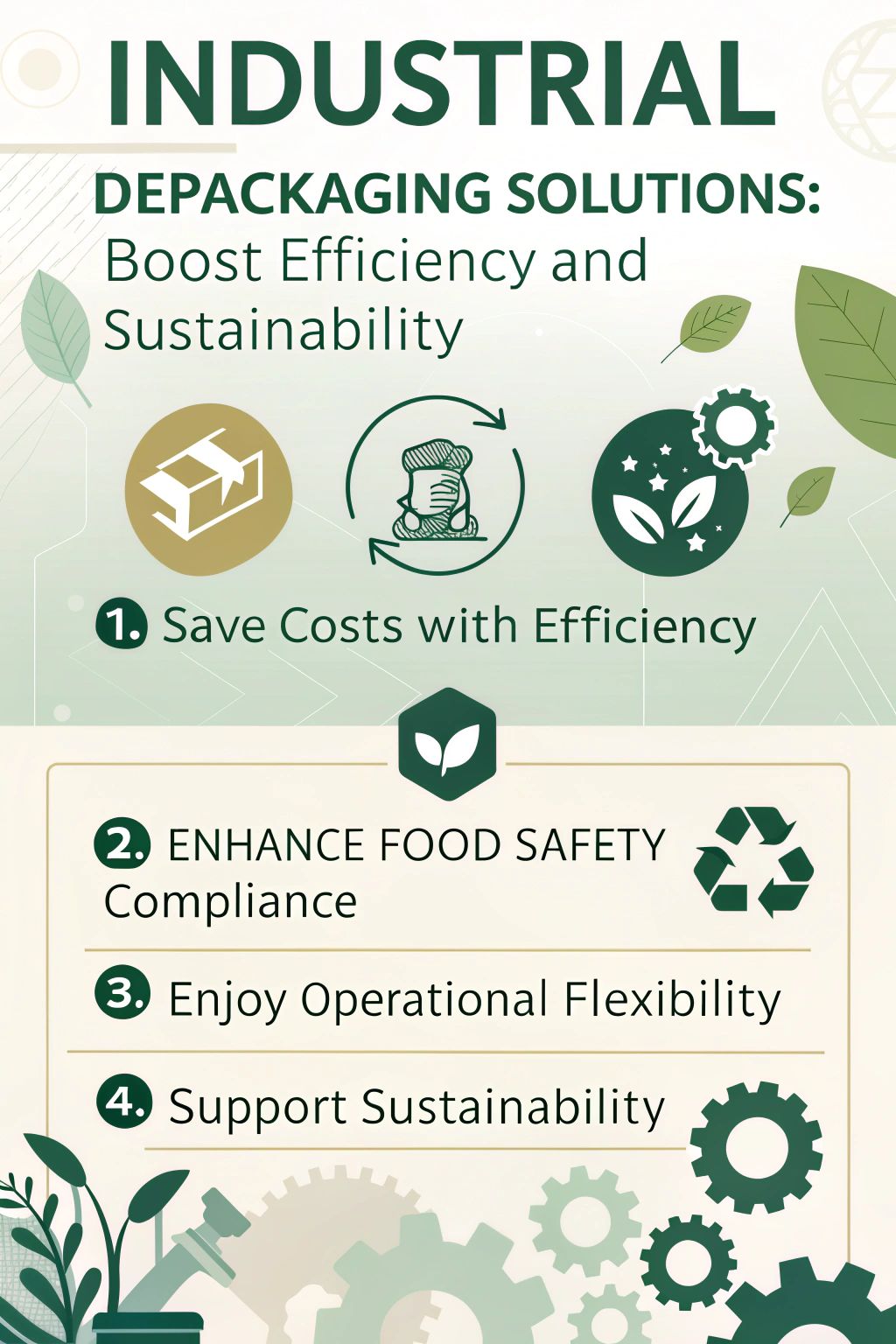
Key Benefits of Depackaging Technology
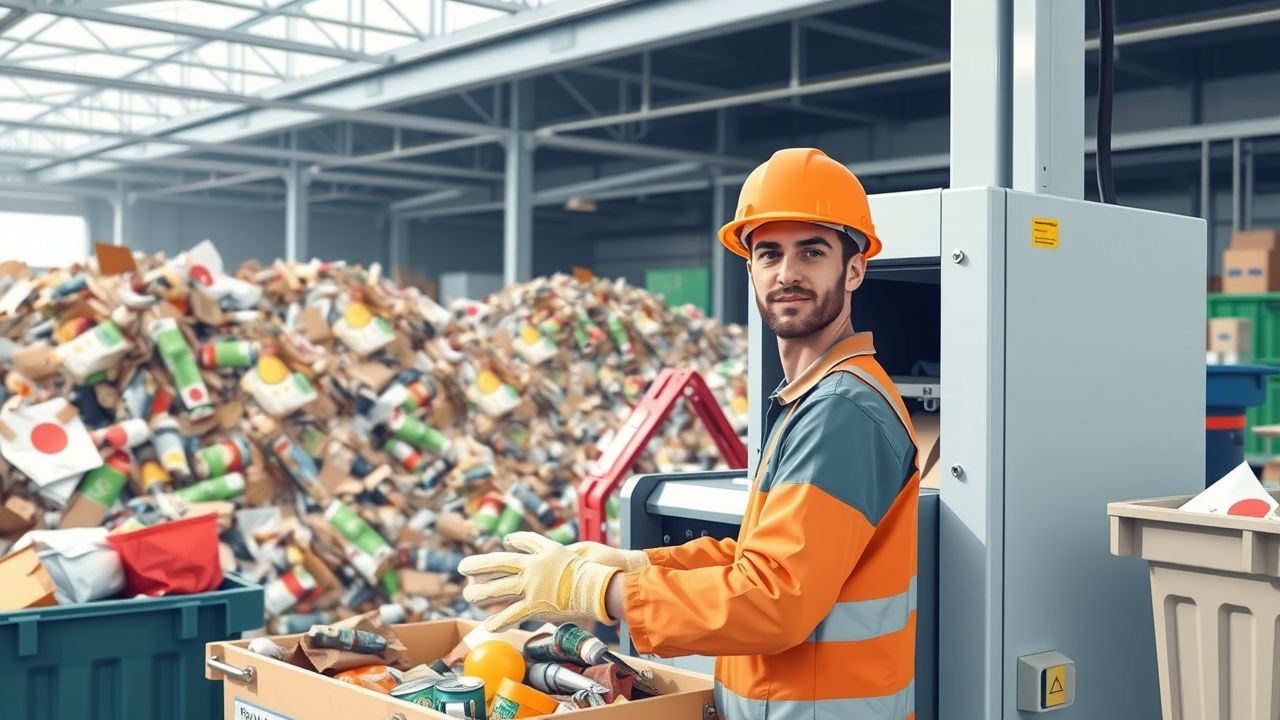
Depackaging technology offers notable advantages. These can lead to substantial improvements in efficiency and sustainability….
Cost Reduction
Industrial depackaging solutions can save money by reducing labour needs. Efficient machines handle most of the work, cutting down on manual efforts and speeding up processes. This means fewer employees are needed for waste processing.
Using these systems also reduces compactor usage and overall landfill diversion. Clean packaging materials can be recycled along with organic waste, which maximises recovery potential.
Businesses often see reduced costs in managing food waste recycling because of this worth noting implementation.
Clean packaging materials maximise recovery potential, highlighting the financial benefits.
Enhanced Food Safety
Reducing costs plays a key role—but so does enhancing food safety. Depackaging technologies help meet food safety laws and ensure compliance. They make sure that waste is handled properly, reducing the risk of contamination.
Secure food waste receptacles get cleaned regularly, adding an extra layer of protection. The Turbo Separator by Scott Equipment Company stands out in this area. It produces over 99% clean organics, making it a top choice for many industries.
These processes also convert organic waste into valuable resources, helping with sustainability goals. By improving safety measures, we can better protect the environment while ensuring safer food disposal practices…
It’s a win-win situation!
Operational Flexibility
Depackaging systems offer great operational flexibility. These machines can handle a variety of waste types, such as meat, dairy, bakery items, fresh produce, and prepared foods. This makes them suitable for different store sizes—from small shops to large supermarkets.
The high processing speeds of modern depackaging equipment boost efficiency in many applications. They can process multiple materials like plastic, glass, and metal at once. This ability helps reduce waste and supports sustainable practices…
making the shift to renewable energy easier.
Next: Types of Waste Suitable for Depackaging
Improved Employee Safety
Automation creates safer work environments. Machines handle dangerous tasks, reducing risks for workers in the recycling industry. Cleaner and more organised workplaces enhance employee satisfaction.
Integration of digital technologies enhances safety further. Wearable sensors monitor workers’ health and safety behaviour in real-time. This proactive approach helps prevent accidents, making sustainable practices like waste minimisation more effective while promoting resource conservation.
Exploring Types of Waste Suitable for Depackaging
3. Exploring Types of Waste Suitable for Depackaging: Many types of waste can be processed with depackaging technology… discover how this helps in creating a sustainable future!
Meat and Dairy Products
Meat waste includes trimmings and packaged meats. Dairy waste covers milk, yogurt, cream cheese, sour cream, and eggs (no Styrofoam). These wastes present recycling potential for raw materials from meat, poultry, and fish processing.
Depackaging solutions can help repurpose these items efficiently.
High biological stability issues arise with meat and dairy waste. This makes disposal costly due to transport needs. Yet, proper depackaging can minimise contamination… ensuring recycled materials stay safe for reuse in sustainable practices like biogas production or composting.
Prepared Foods and Bakery Items
Prepared foods and bakery items often end up as waste. Denali’s depackaging services can handle various types of these foods. These include sandwiches, salads, cakes, and breads.
Their technology separates packaging from food—leading to higher food waste diversion rates.
“Mechanical separation ensures efficiency while keeping contamination low.”
Depackaging helps in recycling materials and reducing the environmental impact of wasted food. This process aids in compliance with food safety regulations—preventing contamination risks effectively.
Grocery and Frozen Foods
Grocery and frozen foods contribute significantly to waste streams. Modern depackaging systems can handle items like tubs of cream, cereal boxes, and frozen goods. Removing these packaging materials is crucial for creating pure organic content.
Various US states are now setting rules to limit organic waste in landfills. Advanced depackaging equipment assists in this mission by lowering contamination rates. This leads to better sustainability and less plastic ending up as non-biodegradable rubbish.
Advanced Depackaging Equipment
Modern depackaging machines are a game-changer for waste management. They help process various types of packaging materials quickly and efficiently.
Types of Depackaging Machines
Industrial depackaging machines play a crucial role. They help to sort and separate waste, making recycling more efficient.
- Turbo Separator T20, T30, T42, THOR
These machines are ideal for processing palletised food waste. They handle pre and post-consumer mixed food waste too. Turbo Separators work at a high capacity, boosting efficiency in the packaging industry. - Twister Depackager and Separator System
This system can process up to 12 tonnes per hour. It’s perfect for large-scale operations in waste minimisation. The Twister separates solid waste from recyclable materials quickly and effectively. - Source-Separated Organics (SSO) Machines
These machines specialise in handling organic waste separately from other types of waste. They are essential for producing biogas in anaerobic digesters or compost piles. - Mixed Solid Waste (MSW) Machines
MSW machines process both organic and inorganic materials together. They’re designed for facilities that need flexibility in sorting different types of waste. - Advanced Compactors
Compactors reduce the volume of waste before it’s transported to an incinerator or landfill site. This helps lower energy consumption during transport. - Anaerobic Digestion Equipment
These systems convert organic biowaste into biogas and fertilisers, which promote sustainable agriculture practices by reducing reliance on chemical fertilisers. - Innovative IoT Technologies
IoT-enabled depackaging machines optimise resource efficiency through real-time monitoring and data analytics, ensuring improved recyclability and reduced CO₂ emissions.
Each type of machine offers unique benefits catered to specific operational needs, enhancing overall sustainability efforts.
Innovations in Depackaging Technology
Depackaging machines have come a long way. New technologies make the process faster and more efficient.
- Twister Depackager and Separator System
- This machine achieves high-purity organic output.
- It reduces microplastics in the reject stream, resulting in cleaner recyclable materials.
- Its compact size allows it to fit in small spaces, making it adaptable for many facilities.
- Low Power Consumption Equipment
- Modern machines use less energy than older models.
- This helps reduce overall costs and carbon footprints.
- Energy-efficient machines are also better for the environment.
- High-Calorific Organic Pulp Production
- Some depackagers create organic pulp with high calorific value.
- Facilities can sell this pulp to biogas plants for energy production.
- This provides extra income while promoting sustainable practices.
- Payment for Sorted Recyclables
- Machines now sort recyclables more accurately.
- Companies receive payment for sorted recyclables, boosting revenue.
- Improved Space Management Systems
- Many new machines take up less space than older ones
- They are designed to be versatile and easy to install
- Compact designs allow businesses to maximise their operational area
- Advanced Contamination Control
- The latest machines have better contamination controls
- They minimise contamination of reusable materials
- Cleaner outputs mean a higher quality of end-products
These innovations make depackaging technology more effective… They bring cost savings, improve safety, and support sustainability!
Minimising Contamination with Effective Depackaging Strategies
Specialised machines like the Turbo Separator by Scott Equipment Company play a key role. They improve how well food packaging gets separated from organic waste. This reduces contamination, making the remaining waste cleaner and safer for recycling or composting.
Effective depackaging helps lower landfill waste. It also decreases methane emissions—a greenhouse gas harmful to our environment. Advanced techniques ensure that less non-biodegradable material mixes with organic content, which improves sustainability efforts.
Implementing such strategies is crucial for achieving a circular economy and reducing CO2 emissions in line with global ecological goals like COP26.
Overcoming Challenges in Food Waste Depackaging
Food waste depackaging faces several challenges. These include dealing with changing regulations and managing technical constraints in processing food wastes….
Navigating Regulatory Compliance
California’s SB 1383 sets strict rules for waste management. This law compels businesses to cut down on organic waste by up to 75% by 2025. Adopting effective depackaging strategies can help meet these targets—saving costs and ensuring compliance.
Denali’s solutions assist in adhering to these regulations. They offer machines that reduce food contamination and enhance sustainability. Compliance boosts a business’s reputation, making it more trusted by customers and partners alike.
Addressing Technical Limitations
Adapting to technical limits can be tough. Depackaging machines must handle many types of waste while being efficient and sustainable. For instance, the Turbo Separator processes 50-200 tons per day, showing its high capacity.
Odour management is vital too. Machines need advanced filters to control smells during depackaging. Waste minimisation and energy efficiency are also key areas needing improvement—especially in systems like biogas digesters that rely on clean organics for optimal performance.
Conclusion
Industrial depackaging solutions are a game-changer. They reduce costs and improve food safety. These technologies also make operations more flexible and safe for employees. Embrace these innovations to boost efficiency and sustainability in waste management…
your business will thank you!
For more insights on how to further enhance your depackaging processes, visit our guide on minimising contamination with effective depackaging strategies.
FAQs for Industrial Depackaging Solutions
1. What are industrial depackaging solutions?
Industrial depackaging solutions help businesses remove packaging from products. This boosts efficiency and sustainability by minimising waste and optimising the supply chain.
2. How do these solutions promote sustainable packaging?
They encourage the use of sustainable packaging by enabling recyclers to reuse materials, reducing reliance on waste disposal methods like landfills or incineration.
3. Can industrial depackaging aid in waste minimisation?
Yes, it supports waste minimisation by separating recyclable materials from non-recyclable ones and ensuring that items like bales can be reused instead of discarded.
4. What technological advancements are involved in these solutions?
Technological advancements include automation systems that sort and process materials efficiently, helping businesses stay competitive while being environmentally friendly.
5. How do these solutions offer a competitive advantage?
By implementing industrial depackaging, companies can optimise their transports and supply chains sustainably, giving them an edge through cost savings and improved environmental impact mitigation strategies.
References
- https://waste-technologies.co.uk/food-waste-depackaging-systems-for-sustainability-and-microplastic-reduction/
- https://thinkviably.com/resource-library/what-is-food-waste-depackaging/
- https://wastersblog.com/103134/characteristics-depackaging-machine/ (2024-02-24)
- https://eprints.whiterose.ac.uk/207478/1/dodoo-et-al-2024-digital-innovations-for-occupational-safety-empowering-workers-in-hazardous-environments.pdf
- https://www.ncbi.nlm.nih.gov/pmc/articles/PMC10928957/
- https://pmc.ncbi.nlm.nih.gov/articles/PMC3614052/
- https://www.denalicorp.com/services/depackaging/
- https://blog.anaerobic-digestion.com/food-waste-separators-for-depackaging/
- https://recyclinginside.com/recycling-technology/separation-and-sorting-technology/depackaging-machines-directory-unveils-groundbreaking-waste-to-profit-solutions/
- https://www.anz.veolia.com/newsroom/newsroom/veolias-advanced-depackager-unwraps-low-food-waste-solution-woolworths-0
- https://thinkviably.com/resource-library/costs-of-not-depackaging-food-waste/
- https://www.agritask.com/blog/food-and-beverage-regulatory-compliance/ (2023-12-18)
Discover more from IPPTS Depackaging Equipment Insights
Subscribe to get the latest posts sent to your email.



